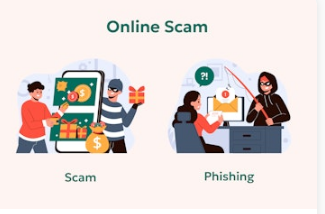There are several common signs that can indicate you are being scammed. Here are some of the most obvious ones to watch out for:
- Unsolicited Communication: If you receive unexpected emails, phone calls, or messages asking for personal information or money, be cautious. Scammers often use unsolicited communication as a way to target individuals.
- Request for Personal Information: Be wary of any requests for your personal or financial information, especially if it comes from unknown sources. Legitimate organizations typically do not ask for sensitive information through email or text.
- Pressure to Act Quickly: Scammers often create a sense of urgency to prompt you to act quickly without thinking it through. They may claim that there is a limited time offer or that failure to respond immediately will result in negative consequences.
- Poor Grammar and Spelling: Watch out for emails or messages that contain numerous spelling and grammatical errors. Legitimate businesses and organizations usually have professional communication that is free of these mistakes.
- Too Good to Be True Offers: If an offer sounds too good to be true, it probably is. Scammers often lure victims with promises of unrealistic rewards or benefits in exchange for personal information or money.
- Unsecure Websites: Before entering any personal information online, make sure the website is secure. Look for “https://” in the URL and a padlock symbol in the address bar to indicate a secure connection.
- Untraceable Payment Methods: Scammers often request payment through untraceable methods such as wire transfers, gift cards, or cryptocurrency. Be cautious when asked to use these payment methods.
- Suspicious Links: Avoid clicking on links in emails or messages from unknown sources. These links may lead to phishing websites designed to steal your information.
If you notice any of these signs, it’s important to trust your instincts and proceed with caution. If you suspect you are being scammed, report it to the appropriate authorities and refrain from sharing any personal information.
